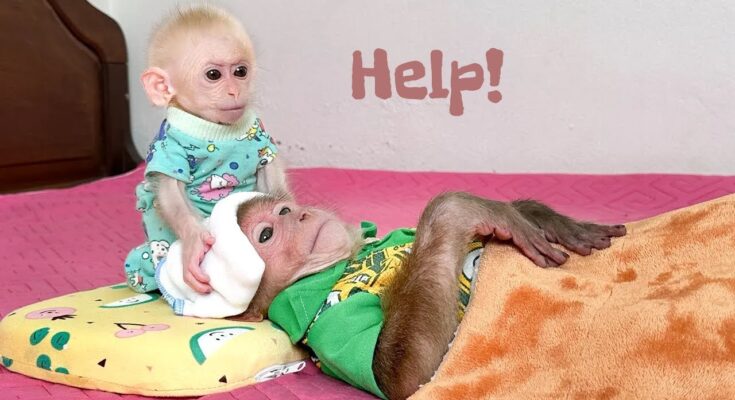While having a baby monkey as a pet might seem cute and appealing to some, it is important to carefully consider the ethics, responsibilities, and challenges involved. In the wild, monkeys live in complex social groups, and raising one as a pet can have serious consequences for both the animal and the owner.
First and foremost, keeping a monkey as a pet can be harmful to the monkey’s well-being. Monkeys are highly intelligent and social animals that require constant mental stimulation, social interaction, and a large, natural environment to thrive. Removing them from their natural habitat and keeping them in a confined space deprives them of the stimulation they need, which can lead to psychological and physical problems, such as stress, anxiety, and aggression.
Furthermore, baby monkeys grow quickly and require specialized care. As they mature, their needs become more complex, and they may display behaviors that are difficult to manage in a domestic setting. Monkeys are strong, unpredictable, and can be aggressive as they reach adulthood, posing a risk to their owners and others around them. They may bite, scratch, or destroy household items, leading to significant damage and potential injury.
Another significant issue is the ethical concern surrounding the capture and trade of monkeys for the pet industry. Many baby monkeys are taken from the wild, a process that can be traumatic and often results in the death of their mothers. This trade contributes to the decline of monkey populations and threatens their conservation status.
In many places, it is illegal to own a monkey as a pet due to the potential risks and ethical issues involved. Instead of keeping a monkey, consider supporting conservation efforts to protect these remarkable animals in the wild or visiting reputable sanctuaries where you can learn about them in a responsible and ethical manner.
In conclusion, while baby monkeys may appear adorable, they are not suitable pets for most people due to their complex needs, potential for aggression, and the ethical concerns involved in the pet trade.
